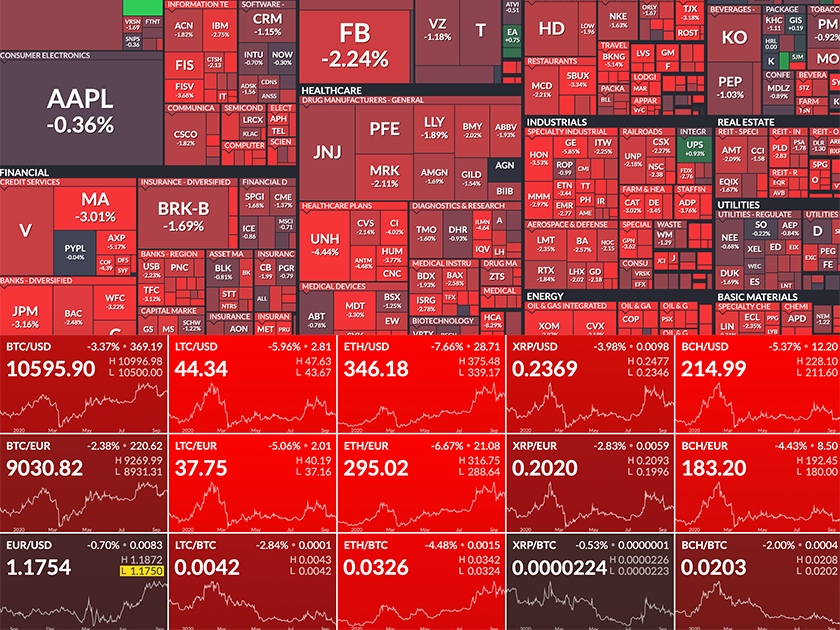Since its inception more than 10 years ago Bitcoin fought to not only establish itself as a decentralized cash system but as a store of value as well. A Store of Value (SoV) is a type of asset that maintains a stable value without depreciating.
Investors traditionally define gold and some other metals as quality examples for SoV assets. On that account, some investors gave Bitcoin the ‘digital gold’ moniker. The question is, did Bitcoin really establish itself as a notable SoV asset? Based on the current state of the global economy, 2020 might as well be the last time for Bitcoin to prove its SoV capabilities.
Taking a look at historic price action influenced by financial uncertainty, we can see that Bitcoin does not fare well. In the dramatic stock market crash in March 2020, traditional markets plunged up to 30%. The Dow Jones Index fell by 26% in the span of four days.
And Bitcoin? The leading digital asset experienced a 61.5% crash from its lower high in February. Furthermore, liquidity on exchanges such as BitMex completely evaporated at the time. The Bid-Ask spread on the exchange turned entirely one-sided on the day of the crash. In fact, there was almost no liquidity on the bid side which resulted in extremely high price volatility.
This week, the stock market experienced another crash although not that dramatic. Monday started out red as most indexes fell by up to 10%. Similarly, Bitcoin also experienced a slight crash. After reaching $11k on the weekend, Bitcoin’s price quickly fell to $10.3k on Monday. This would be the second stock-related crash this month.
On September 3, another mini-crash resulted in Bitcoin falling to the same price level it previously had. Therefore, will Bitcoin fall again for the third time or will it finally prove itself as a SoV asset?
The Answer: Not that likely
Stocks are far away from having a healthy correction. The gigantic bubble that world economies pumped in the past few decades has finally reached a point of no return. Therefore, popping the bubble would require crashes worse than the ones we have seen in 2020. Economists predict that the next crash might be even worse than the one in 2008.
This Monday, it was revealed that multiple countries who are a part of the G7 group already entered a recession with several negative percentage points. The global economic state is so dire that even traditional SoV assets like gold did not withstand the financial panic. Gold and other metals dumped almost 4% this week.
Furthermore, the Federal Reserve Chairman Jerome Powell repeated several times since the crash that global economies may face further downturn. Combined with the way Bitcoin reacted to the recent crash, it becomes clear that the digital asset may not be digital gold after all. Its store of value narrative was in the end purely speculative.
Bitcoin is still closely correlated with traditional markets and a sick global economy will eventually lead to the same fate for digital assets. In a future crash, cryptocurrencies may reach the same fate they had in March when Bitmex had almost zero liquidity. When panic starts and there are suddenly more sellers and almost no buyers, Bitcoin will reveal its real non-speculative value.
If you found this article interesting, here you can find more Bitcoin news











